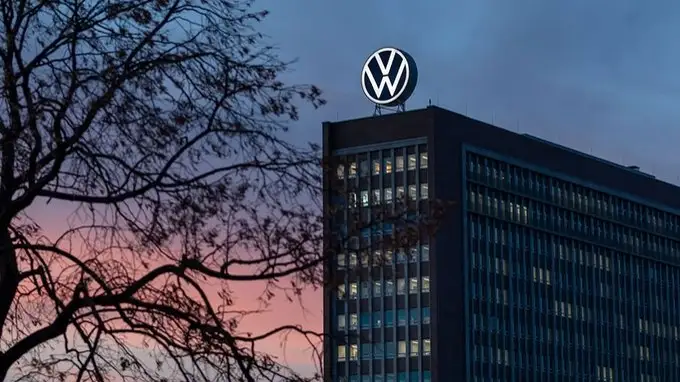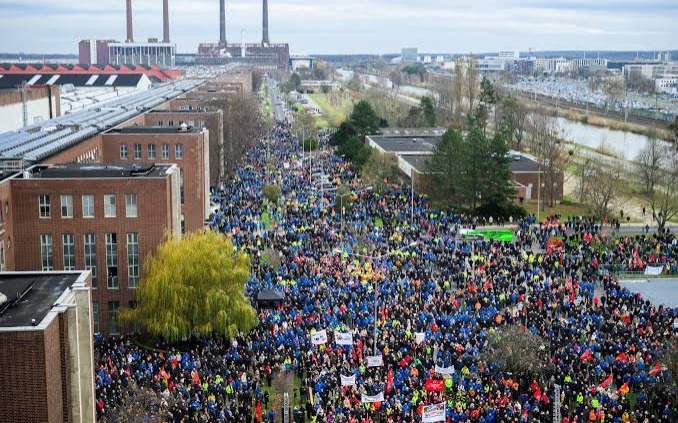Volkswagen faces warning strike amid ongoing negotiations with IG Metall
Volkswagen AG finds itself at the center of escalating tensions as employees participate in a warning strike organized by IG Metall, the union representing many of its workforce. The strike, a response to ongoing disputes over collective bargaining agreements, comes at a critical juncture for Volkswagen as it navigates economic pressures and industry-wide challenges. Head of Strategy & Finance Communication Christopher Hauss explained the Volkswagen's position to Kazinform News Agency.

Volkswagen’s position
In an official statement, Christopher Hauss emphasized the company's commitment to constructive dialogue and minimizing disruption.
"Volkswagen respects the right of employees to participate in a warning strike. We aim to achieve a sustainable, jointly supported solution while keeping the impact on customers and operations as low as possible," Hauss stated.

To this end, the company has implemented emergency measures to maintain operations during the strike. Internal communications are also being used to keep employees informed of developments.
Key demands and proposals from Volkswagen
Job safeguards:
Volkswagen is revising its longstanding job safeguard policy, part of its collective agreement since 1994. The company argues that economic and structural challenges necessitate a realignment to ensure the sustainability of production sites and jobs.
Revised compensation systems:
Volkswagen seeks to restructure the bonus system for employees in the Tarif Plus bracket, tying it to a profit-sharing model.
Adjustments for trainees and temporary workers:
Trainee hiring will be aligned with actual demand, aiming for better planning and resource allocation. Temporary workers will be employed under sector-standard terms, addressing the higher costs currently incurred by Volkswagen compared to competitors.
Efficiency measures:
Proposals include eliminating anniversary bonuses and a monthly agreed bonus of €170, along with a standardized 35-hour workweek across all employees.
Union Resistance
IG Metall has strongly opposed Volkswagen's proposed measures, emphasizing the importance of longstanding agreements. The union argues that job safeguards, trainee hiring, and fair conditions for temporary workers are critical to employee well-being and future job security.
Volkswagen, however, sees these changes as necessary adjustments. “The company is reacting to the current economic and structural challenges with the goal of realigning the safeguards for production sites and jobs,” the statement reads, underscoring the firm’s strategic focus.
Industry Context
The strike reflects wider challenges in Germany’s automotive sector, which faces rising costs, electrification, and global competition.
Volkswagen aims to ensure its competitiveness by making adjustments to collective agreements. According to the company, “A future-proof, competitive standard collective bargaining agreement with uniform working conditions… is a further building block for efficiency.”

What’s Next?
Volkswagen has reiterated its commitment to keeping employees and stakeholders informed. “The company will provide information on further developments,” the official statement confirmed, while emphasizing the importance of constructive dialogue with unions to reach a resolution.
As the strike unfolds, the company’s balancing act between economic sustainability and employee satisfaction will be closely watched, with potential ripple effects throughout the industry.
